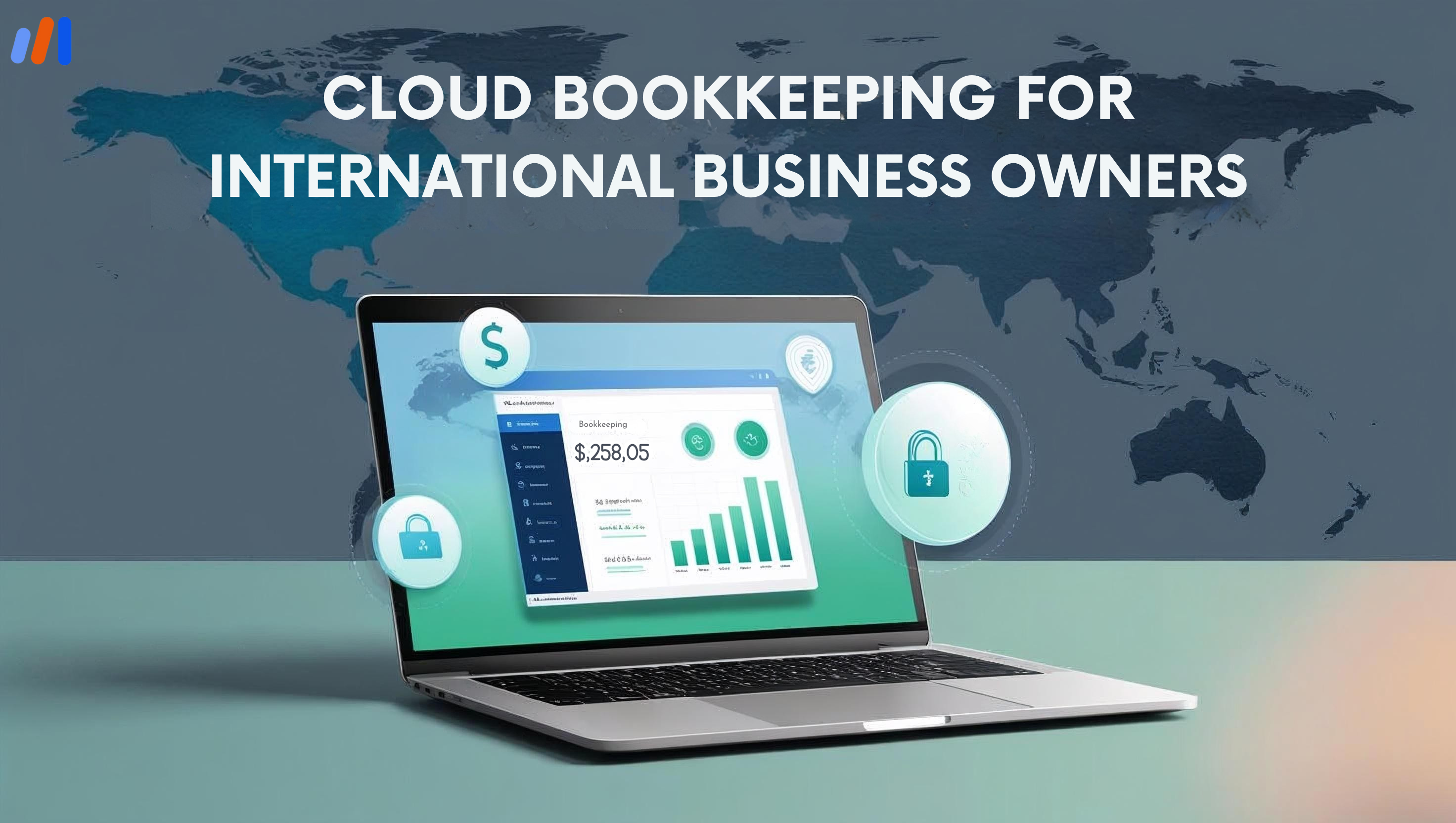Dealing with taxes is usually a difficult affair for business owners because of the complex regulations, time frames, and forms that need to be filled. However, ignorance and poor management of tax obligations can lead to potentially disastrous repercussions.
From tax penalties to loss of tax reliefs, the extent of loss from tax errors can be huge. It is important therefore to be vigilant and educated enough to help your business correct some of the common mistakes most businesses make with taxes.
This guide outlines 11 tax mistakes every business must avoid in 2025 and every business owner should take care not to bend the law.
1. Failing to Keep Accurate Records
Books of Accounts and recordings should be accurate and organized in every business to facilitate proper tax return filing. It is not only to ease the process of filing, but it is also to make sure that businesses make claims for all the tax deductions allowable to which they are entitled, declare the income properly, and remain compliant with the IRS.
Most forms of tax revenue agencies such as the IRS, do not hesitate to punish individuals or businesses who do not maintain proper documentation of expenses, revenues, and holdings which often leads to unclaimed deductions and costly mistakes.
Key tips:
- Always retain business transaction records, including but not limited to income, expenditure, wages, and invoices.
- Always record everything using an accounting package, for example, QuickBooks or Xero. It is important to divide the expenses into categories, for example, materials, food, salaries, travel, and so on.
- If you are subject to an audit, it is important to maintain documentation for at least 7 years since the IRS can verify returns for that period.
Why it matters: If your company is audited, being able to produce relevant documents is crucial to avoid possible penalties, extra tax assessments, or even troubles with the law. Proper documentation also simplifies and hastens the process of filing tax returns.
2. Misclassifying Employees vs. Independent Contractors
One of the blunders that is most frequent and costly is misclassifying a worker who is supposed to be an employee as an independent contractor. The IRS has policies in place that facilitate the distinction between an employee and an independent contractor. It is the potential to pay back taxes, suffer penalties, and worse still face legal action for making employee misclassification errors.
Key tips:
- All employees, in the course of having an employment relationship, are usually more autonomous of each other regarding time, place, nature, and how the work is done. Independent contractors work for themselves, so they have more latitude and creativity in completing the work assigned to them.
- When an organization determines the time, place, and methods of performance of a task or even a series of tasks, that worker is not a contractor but an employee.
- Misclassified employees are to be provided with tax forms that are appropriate to their category: W-2 for employees and 1099 for independent contractors.
Why it matters: Misclassification can attract heavy penalties from the IRS in the form of fines and the obligation to repay taxes owed, including employee social security tax, medicare tax, and unemployment tax. In addition, workers also may be entitled to such benefits which were never given to them due to the wrong classification.
3. Ignoring Deductible Business Expenses
Another way out of paying high taxes is to make sure that all offered deductible business costs are properly claimed. There are common business expenses that are usually left out, such as travel for business, purchase of office supplies, and paying for software subscriptions that should lower one’s taxable income. This step can lead to unnecessary payment of taxes.
Key tips:
- Business expenses such as travel, purchase of office supplies, marketing expenses and even a part of the bills of your internet as well as phone are qualifying expenses. It is important to ensure that you have records of these regularly throughout the year.
- Some expenses; for example, meals and entertainment may be incurred but these will only be partially allowed for deduction so long as they are directly related to the business.
- Opt for the use of an expense tracking application to enhance record keeping and accuracy.
Why it matters: If business deductions are ignored, it means you may be subjected to more tax liability than necessary. This effectively means that your tax bill is unnecessarily inflated. However, the more one claims deductions the subjective gross income will also decrease which is good as it will mean less tax owed.
4. Overlooking Sales Tax Obligations
Any business engaged in the sale of goods or services has to be compliant with sales tax. Ignoring the payment of sales taxes is however a common mistake that several business owners make, particularly those who are engaged in e-commerce or have business in different states. Each state has its own guidelines, and a violation of sales tax guidelines might lead to hefty fines and outstanding sales tax liability.
Key tips:
- Make it a point of duty to learn the sales tax rates of the states you transact in business within. Some states apply different rates or exemptions for some goods and services.
- If you trade on the internet, don’t forget to check out the sales tax regulations of other states. The Supreme Court’s South Dakota v. Wayfair ruling provided the framework for the States to mandate other sellers that aren’t located in their state, to collect taxes.
- Sales tax software should be activated to carry out automated calculations and facilitate remittance.
Why it matters: Failure to comply with sales tax obligations can have dire consequences including high fines, interest, and even barring the establishment from operating within some states. It is advisable to make provision for taxes as part of your expenditure regularly.
5. Not Taking Advantage of Tax Credits
Tax credits are more beneficial than deductions because they reduce the amount owed directly and most business entities overlook these golden chances. These include credits such as the R&D credit, and energy-efficient tax credits.
ERC can substantially reduce expenses for your business. Sadly, too many businesses do not apply for them, either because of ignorance that they even exist or believe they do not qualify.
Key tips:
- The R&D tax credit is automatically offered to businesses that are pursuing future technological or scientific achievements. The tax credit is optimal for technology startups.
- If you were able to keep employees on payroll during the COVID-19 pandemic be sure to use the ERC. It provides substantial benefits, particularly to the businesses affected by the pandemic restrictions.
- Speak to a licensed tax professional to ensure that you are not missing credits applicable to your type of business.
Why it matters: Unlike deductions where only taxable income is affected, tax credits reduce the amount of taxes owed making them more beneficial. It is senseless to ignore these credits as it means overpayment of taxes.
6. Failing to Make Estimated Tax Payments
Each businessman whose final tax liability after credits and deductions is over one thousand dollars must pay estimated quarterly taxes. These Payments can save you from underpayment penalties and interest charges. A large number of businesspersons forget or postpone making these payments which results in extra costs.
Key tips:
- Complete a form 1040-ES before making quarterly payments and calculate estimated taxes for that quarter. The form indicates what you should be able to pay every quarter spanning throughout the whole year.
- Bear in mind the average monthly income of your business and do not set payment fixed so you do not have too many surprises.
- Ensure the tax is paid at the relevant due date as the penalties charged for late payment can be large.
Why it matters: Late payment of any incurred tax liability once estimated payment has been made brings a lot of penalties and interests coupled together which adds cost to the business. Plan to keep the payment under control so that there is no distress in the future.
7. Not Filing or Paying on Time
Taxpayers who are late in paying their taxes or do not file taxes will have a chance to suffer penalties which could be a lot for being overdue in paying taxes or due for a refund. The Internal Revenue Service has failed to file penalties which is a lot more than what is known as failure to pay penalties. It is necessary to file even if one cannot make payment for the whole amount in question.
Key tips:
- Ensure that you are aware of your tax deadlines and record them in your calendar as well as set reminders for the dates for both filing and payment.
- If it is impossible to pay the total amount, it is still advisable to submit the tax return and appeal to the IRS to pay in installments.
- If more time is needed, do consider filing for an extension; however, keep in mind that the extension is applicable for the filing only and not for payment.
Why it matters: If you file your return after the due date and you make payment after the due date, both actions will attract a penalty and an interest and they make what you owe to be scaled up faster. Even if you owe taxes, filing on time avoids adding further penalties to the schedule for payment of the taxes since the return has already been filed.
8. Neglecting to Claim Depreciation
One of the tax benefits that patience in business brings is depreciation benefits. Business owners can appreciate the cost of their major assets over a certain period. It is noted that a lot of businesses do not claim depreciation on their vehicles, machines as well and equipment which means that the business has higher taxable income and more taxes to pay at the end.
Key tips:
- Know the categorization of the business assets when it comes to claiming depreciation such as real estate, equipment, or vehicles.
- Claiming such assets against an immediate expense via the IRS Section 179 can be beneficial rather than taxing it the year after a claiming bonus, which is diminishing, installed a certain expense into a newly acquired asset.
- You should regularly review your fixed assets and ensure they have been properly depreciated in your accounting system.
Why it matters: A failure to claim depreciation means that there is a valuable deduction that is missed which can significantly lower the taxable income. It will also lead to an individual’s paying more taxes than is warranted.
9. Mixing Personal and Business Finances
Mixing personal and business finance is one of those mistakes that people make more often and results in creating a tax mess when the time comes. Tracking business expense fields begins to be more difficult due to this fact and therefore makes the chances of an audit higher which is something most business owners want to avoid at all costs. This can ultimately be avoided by having both business and personal accounts as separate entities when it comes to tax purposes.
Key tips:
- Ensure you create a distinct bank account and have a different credit card for your company. This helps with keeping track of business-related transactions and providing necessary documentation.
- Do not spend your income on your business needs, and do not use your business’s money for your expenses. This avoids misplacements.
- Every account that is opened in business transactions should account for every single transaction to maintain sanity in the firm.
Why it matters: Once you mix your accounts with business accounts, tax returns become a nightmare especially when trying to legitimize a deduction claim; chances of an IRS audit self elevated. Aggravated reporting assumptions therefore keep the accounts separated.
10. Ignoring Changes in Tax Laws
Often, tax laws change over time. Not keeping up with these changes means losing out on especially good things and or violating the regulation. The Tax Codes have a certain lifecycle, and jurisdictional quota succession distribution which subjugates the entities to periodic changes in tax legislation, providing tax relief options, enticements, and policy changes to the companies.
Key tips:
- A good step that one can take is to become a member of IRS newsletters and or updates that provide information on changes that are deemed pertinent to your type of business.
- People who employ tax consultants have the advantage of being updated always with the changes and they are in the know on possibilities of how the changes affect their businesses.
- A last possible recommendation is to at least partake of other forms of education on tax from web seminars, workshops, and or family learning sections to keep abreast with tax changes.
Why it matters: Staying abreast with the changes in tax legislation helps you to always be in the new allowances or compliance requirements and as such manages your taxes effectively.
11. Underestimating the Complexity of International Taxes
If your business expands its operations to other countries or has international clients, vendors, or staff, there are various tax issues you may have to deal with. These may include international tax jurisdictions, value-added taxes, treaty benefits, and foreign reporting of income.
Key tips:
- Take the burden of tax compliance in countries that you are expanding to into consideration. Many countries are strict and have discriminating policies against businesses and foreign businesses.
- Consider hiring an international tax lawyer to take care of your tax issues and assist in all international compliance matters.
- Know the rules for foreign income reporting and don’t forget to follow IRS guidelines for international taxation paperwork.
Why it matters: International tax matters can be difficult and often come with hefty fines if not dealt with appropriately. Violation or unsupported residency of international tax laws can result in your brand accumulating rogue titles, attracting fines and back taxes too.
How EasyFiling Can Help Save You from Tax Penalties
Every business makes mistakes in taxation at one point in time or another. EasyFiling’s expert tax advisory services can be relied upon to avoid such costly mistakes.
EasyFiling also gives you personalized support depending on your business needs, such as ensuring you maintain the correct records and retain proper classification of all employees, and guiding you in claiming all the deductions and credits necessary.
“Out of sight, out of mind” is a phrase that can be optimistically associated with EasyFiling, as the company reduces the burden imposed and responsibilities required of you, and keeps you informed of changes to tax laws and how to deal with international taxation complexity.
No more hefty fines, no more struggling with tax laws, just filing taxes quickly and going to focusing on developing the business.
File Your LLC Today
25$ off with a coupon
Lock in EasyFiling's transparent rates and get lifetime compliance support at no extra cost.
Get Started Now









